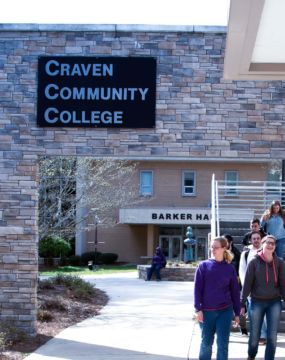Education
Keep up with our latest demographic insights

This blog is the second in a series exploring myFutureNC’s statewide dashboard indicators, which span the educational continuum. Read the complete series. This week, we’ll be going in depth on two similar indicators - College-and-Career-Ready in reading and math. Although we provide detailed information on NC, national data on the percent of 3-8 grade students who earned college-and-career-ready scores on End-of-Grade (EOG) reading and math exams are not available, and therefore we cannot compare North Carolina to other states. What…

This blog post is the first in a series exploring myFuture NC’s statewide dashboard indicators, which span the educational continuum. For week 1, we’ll be going in depth on NC Prekindergarten (NC Pre-K) enrollment. Although we provide detailed information on NC, data on enrollment in Pre-K is not available nationally, and therefore we cannot compare NC’s enrollment rates to other states. What is NC Pre-K? Research has established that the first several years of a…

In February, we partnered with myFutureNC to launch a statewide attainment dashboard to serve as a shared, nonpartisan source of information about the state of education in North Carolina. The dashboard tracks proven indicators along the education continuum, capturing key transition points for students from NC Pre-K enrollment through degree or credential completion and into the labor market. On the dashboard, you’ll find a simple, visual way to learn more about individual indicators, including how…

A report published last month by the National Center for Homeless Education at UNC-Greensboro indicated that the population of homeless students enrolled in public school districts has increased 15 percent in the last three years and now numbers 1,508,265 youth, the highest in more than a decade. In North Carolina, there are an estimated 26,361 public school students who experienced homelessness over the course of the 2016-17 school year, according to the United States Interagency…

We partnered with myFutureNC to launch a statewide attainment dashboard to serve as a shared, nonpartisan source of information about the state of education in North Carolina. The dashboard tracks proven indicators along the education continuum, capturing key transition points for students from NC Pre-K enrollment through degree or credential completion and into the labor market. On the dashboard, you’ll find a simple, visual way to learn more about individual indicators, including how we calculated…

This is a continuation in our series looking at wages after graduation. Previous entries in the series include Degrees and credentials with the highest growth in wages, Highest average wages for UNC system graduates, and highest average wages for NCCC graduates. The question of whether to pursue a degree or credential after completing an undergraduate degree is one that students across the US are considering more than ever before. According to the National Center for…

In previous posts, we have highlighted the programs of study where NC Community College graduates and UNC system graduates were making the highest average annual wages five years after graduation. This post examines the programs of study and credentials associated with the highest growth in wages over a 10-year period for both NC Community Colleges and UNC system graduates [1]. In terms of making decisions about a future career, wage growth is another data point that a…

Last week, we highlighted the programs of study where NC Community College graduates were making the highest average annual wages five years after graduation, as well as the percentage employed who graduated from that program. This week, we’re doing the same thing for UNC system graduates. This data comes from the NC Tower database, maintained by NC Department of Commerce, which provides aggregate information on degree attainment, programs of study, and wage/employment information from public postsecondary institutions in North Carolina. For…

One of many decisions that students transitioning from high school to postsecondary education are faced with is what program of study and credential to pursue. This can be challenging, since students are often not aware of the opportunities and salary potential associated with different careers. The NC Tower database can provide some insight into this important question. NC Tower is a web-based data delivery system, maintained by the NC Department of Commerce, which provides aggregate…

Between 2014 and 2026, nearly 1.6 million students will enter the state’s K-12 public school system as ninth graders. Under current graduation rates, more than 213,000 of them are predicted to drop out or delay high school graduation. Let’s break it down further. For every 100 ninth graders that start public high school in NC: 86 graduate high school within 4 years. 14 dropout or take more than 4 years to complete high school. In…
Your support is critical to our mission of measuring, understanding, and predicting population change and its impact. Donate to Carolina Demography today.